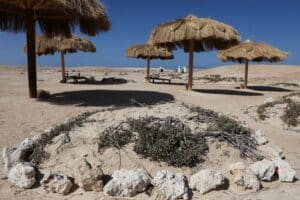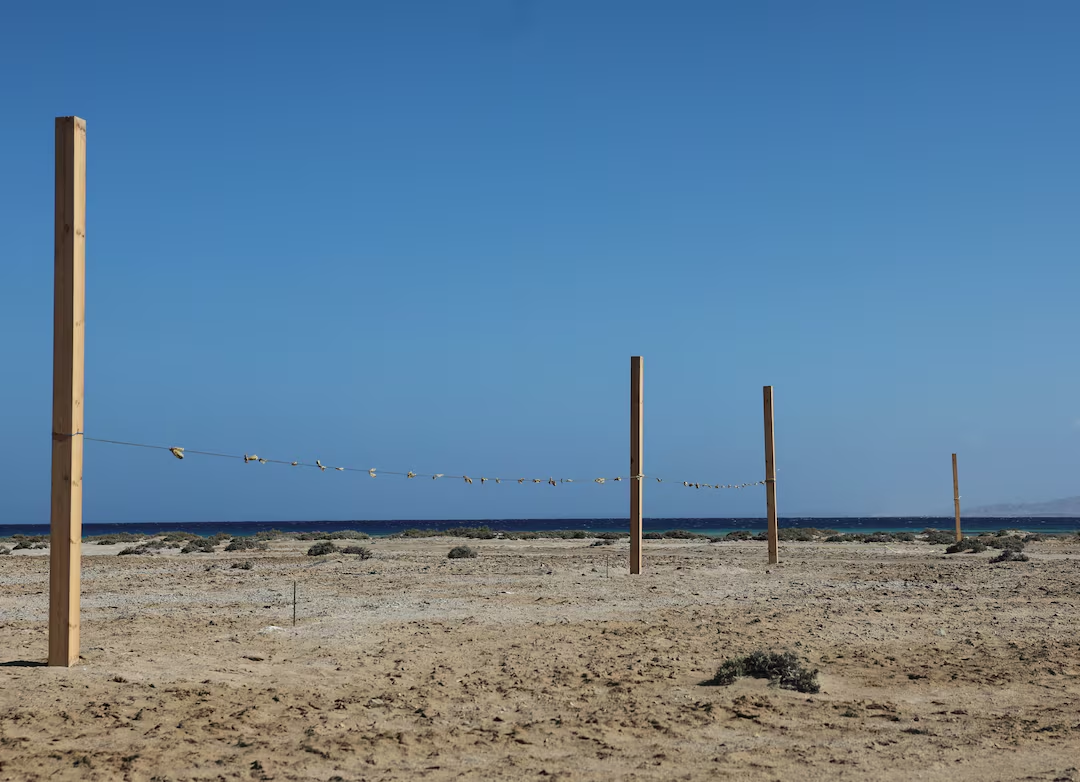Source
Summary
Tourism vital to Egypt’s economy.
Egypt aims to boost visitors, develop facilities.
Conservationists warn development threatens Ras Hankorab Beach.
Red Sea reef has tolerated warmer climate.
RAS HANKORAB, April 15 (Reuters) – Ras Hankorab Beach, a pristine spot on southern Egypt’s Red Sea coast with crystal clear waters and flat white sands, is the jewel of Egypt’s Wadi el-Gemal National Park, home to one of the country’s last untouched marine ecosystems.
Today, the beach, a 90-minute drive from Marsa Alam international airport, and a four-hour drive from the huge, fast-growing resort of Hurghada, is closed off by a wooden fence, and campaigners are battling to halt its development with, according to the original plans, dozens of accommodation huts, a restaurant and a farm.
Conservationists warn a fragile ecosystem supporting turtles, the coral reef, sea grasses and myriad species of fish is under threat and locals fear losing a precious natural resource forever.
Fighting economic crisis, Egypt has been selling investment licenses in its national parks to developers in the hope of raising income. Projects vary in size and scope.
Tourism is one of the most important pillars of the Egyptian economy. A recent UN Tourism report estimated annual tourism revenue at $14.1 billion in 2024, more than double Suez Canal revenues.
With 17 million visitors in 2024, an annual increase of 17%, Egypt sees potential to boost numbers with more infrastructure, air connectivity and sustainable, coastal and desert-focused holidays. Turkey had 62 million tourists in 2024, Greece 35 million and Dubai 18.7 million.
Environmentalists and local communities warn that even light construction on the beach would destroy one of Egypt’s last untouched marine sanctuaries.
Asmaa Ali, executive director of Ecoris, an Egyptian sustainable development and conservation group, said the national park and beach is one of the world’s most important spots for biodiversity.
“It has one of the most precious coral reefs, located at the reserve’s beach. It also has sea turtles at risk of extinction, it has mangrove trees,” she said.
Sherif Baha el-Din, a co-founder of Wadi el-Gemal national park, said tourists seek unspoiled nature, not concrete resorts.

Over the past decade, changes to the law have allowed spots within Egypt’s national parks to be used for commercial projects. Environment Minister Yasmine Fouad said projects within protected areas including national parks surged from 10 in 2016 to 150 in 2024, with revenue increasing by 1,900%.
Reporting by Mohamed Ezz Editing by Alexandra Hudson
